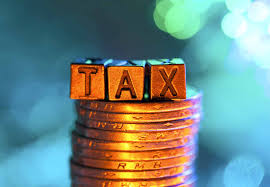Tax on gold: short term, long term and calculation
India’s Income Tax Act states that proceeds from selling gold bars, jewellery, coins or utensils, or any other form of precious metal will incur capital gains tax. Under the heading “Capital Gains” in Income Tax, the bonus from the disposal of your gold holding is taxable. The sole exception is gold traders who trade in gold as part of their business, in which case earnings are taxable under the heading “Benefit from business or occupation.”
Capital Gain Tax on Gold, Gold Jewelry, Bars, ETF, Gold Coins, Gold utensils
| Type Of Gain | Holding Period | Capital Gain Tax Rate | Exemption |
|---|---|---|---|
| Short term capital gain on gold | Less than 3 years | As per the tax slab applicable to the assessee | None |
| Long term capital gain on gold | More than or equal to 3 years | 20% with indexation benefit | Exemptions available if the net proceeds are invested in Section 54EC bonds or residential property section 54F |
Short term capital Gain Tax on Gold bars, gold coins, gold ETF’s
If you sell your gold asset within three years of its purchase date, which could be in the form of gold jewellery, coin, or ETF, any benefit resulting from such transaction may be regarded as a short-term capital gain. In the event of a short-term capital gain, gains gained from selling gold would be charged at the marginal income tax rate available to persons and HUFs. The benefit of dividends gained is added to your regular profits, which is charged according to the Income Tax Department’s income tax slabs.
You may link to the FY 2017-18, AY 2018-19 guide of income tax slabs for the existing income tax slabs. For example,  Mr Yuvraj bought 2 lakh worth of gold coins on April 1, 2014, and exchanged them for 3 lakh on March 31, 2016.
Mr Yuvraj bought 2 lakh worth of gold coins on April 1, 2014, and exchanged them for 3 lakh on March 31, 2016.
What is his tax liability?
Mr Yuvraj gained a Rs 1 lakh profit from selling gold loans to be considered capital gains. Since the retention period is shorter than 3 years, the earnings would incur short-term capital gains tax under the Income Tax Act. The applicable tax rate would lead to Mr Yuvraj’s marginal tax rate slab in the relevant year.
Long term capital raises on the sale of gold bars, gold coins, ETF’s
If you sell gold jewellery, coins, or an ETF three or more years after buying it, the benefit is known as long-term capital gains. The long-term capital benefit from selling gold reserves bears a 20 per cent tax rate along with the related surcharge and termination of schooling.
Profits received under the LTCG are taxable under a different heading for long-term capital gains and are eligible for the gold asset purchase cost indexation advantage. By reducing those indexed costs from the realized net sale price, the long-term capital gain is calculated.
For instance, on 1 April 2012, Mr Yuvraj bought gold coins of 5,00,000 lakhs and sold the same on 31 March 2016 for 7,00,000 lakhs.
What is his tax liability?
Mr Yuvraj made a profit of Rs. 2 lakh from selling gold loans, which would be called a capital gain and subject to capital gains tax. The capital gain will be known as long-term capital gains that will be taxable at 20 per cent because ownership duration is more than 3 years.
Mr Yuvraj can take advantage of indexation, but he would have to pay tax on the difference between the sale and indexed gold coins rate. The indexed purchase cost is greater than the real acquisition cost, and the measured capital returns would also be lower than 2 Lakh.
Tax exemptions on long term capital gains arising from the sale of gold
Parts 54EC and 54F of the Income Tax Act exclude long-term capital gains from the disposal of gold investments from taxes.
- The accessible exception under Section 54EC: If you invest the selling proceeds in capital gains bonds issued by NHAI, REC, NHB, and other defined public sector agencies, Section 54EC of the Income Tax Act exempts capital gains tax on capital gains resulting from the sale of gold. In a financial year, the overall amount of capital gains paid in these bonds is 50 lakh. Investments must be made within six months of the date on which the asset is transferred.
- Exemption applicable according to Section 54F: Section 54F of the Income Tax Act spares you from the tax on capital accruals resulting from the selling of gold if you spend the residential property purchase proceeds in compliance with Section 54F. You may assert a deduction for one residential property acquired within 1 year before, or 2 years after, the selling of gold properties or the development of one residential property within 3 years of the date of the move.
Tax on Gold Gift
Tax on gold received as a gift or inheritance.
If the total quantity of gifts or gold received during the year exceeds 50,000, the gold or gold asset will be taxable under the heading ‘Income from other means’ at the time of purchase.
However, there are many variants of movable gifts (including gold).
- The average amount of gifts in one year is less than 50,000.
- Gifts are obtained from families referred to in the Income Tax Act, including the spouse of a person, the brother or sister of an individual, the brother or sister of an individual’s spouse, the brother or sister of any of an individual’s parents, any lineal ascendant or descendant of an individual and any lineal ascendant or descendant of an individual’s spouse.
- On the occasion of the individual’s engagement, presents are obtained from acquaintances or family.
- Any asset you have inherited as a result of a will or a succession rule applies to you.
Tax on sale of gold assets received as gift or inheritance.
In the point of the disposal of gold properties that have been donated or acquired by you, you are responsible for paying capital gains tax on property. In this example, in the case of gifted or inherited gold, you are entitled to pay capital gains tax on all purchase proceeds of gold properties since the production cost is taken as zero in gifted or inherited gold.
The cumulative ownership period of the gold commodity, which includes the period during which it was owned by the former owner who had previously paid for it and the period the gold had been with you since selling, will decide what short or long term capital gains tax will apply.
If the total holding period reaches three years, the gain is called long-term capital gains; if the total holding duration is less than three years, the gain is considered short-term capital gains. It will be taxable at the rate of 20 per cent if the benefit counts as long-term capital gains. If the benefit counts as a short-term capital gain, then the tax rate corresponding to the income tax assessee’s regular rate is applicable, as calculated based on his gross revenue.
If the total holding period reaches three years, the gain is called long-term capital gains; if the total holding duration is less than three years, the gain is considered short-term capital gains. It will be taxable at the rate of 20 per cent if the benefit counts as long-term capital gains. If the benefit counts as a short-term capital gain, then the tax rate corresponding to the assessee’s regular rate is applicable, as calculated based on his gross revenue.
Tax on sale of gold deposit certificate under Gold Monetization Scheme
To estimate capital gains under the Income Tax Act, gold deposit certificates issued under the Gold Monetization Programme, 2015 are not called capital assets. Any benefit gained from the selling of these certificates is absolutely tax-free. Furthermore, interest gained on these certificates is tax-free.
Tax on sale of Gold Sovereign Bonds
The benefit from the selling of Gold Sovereign Bonds is completely tax-deductible. Interest received on Gold Sovereign Bonds, on the other hand, is taxable under the applicable Income Tax laws.
Do you want to know about all the hidden Tax benefits in your Personal Loans?
FAQs for Tax on Gold✅ How much gold is tax-free in India?
The tax on gold arises only when you sell it. Thus, there is no limit to the extent of gold you can hold without paying tax if you are not going to sell it.
✅ What is the tax on gold in India?
The short term capital gain tax on gold is applicable income tax slab rate, whereas the long-term capital gain is 20%. Visit Dialabank for further details.
✅ How do you calculate tax on gold?
If the tax on gold is under short term capital gain, then the sale’s profits will be added with regular income to calculate tax based on applicable income tax rates. On the other hand, if the tax on gold is under long term capital gain, then the profits from the sale will be taxed at the rate of 20% by applying the indexation of cost.
✅ Is tax chargeable on a gold loan?
No, the gold loan you take out against your gold items is not payable, so it is not considered part of your salary. Apart from tax advantages, there is a slew of other perks to taking out a loan against gold.
✅ Do you get taxed on selling gold?
Yes, the tax on gold is applicable only when you sell the gold.
✅ How much gold can you sell before paying tax?
There is no exemption based on the amount of gold. However, in the case of long-term capital gain from gold, the exemption is available if net proceeds are invested in bonds as per Section 54EC or in residential property as per Section 54F.
✅Is gold purchase taxable?
No, the gold purchase is not taxable in India.